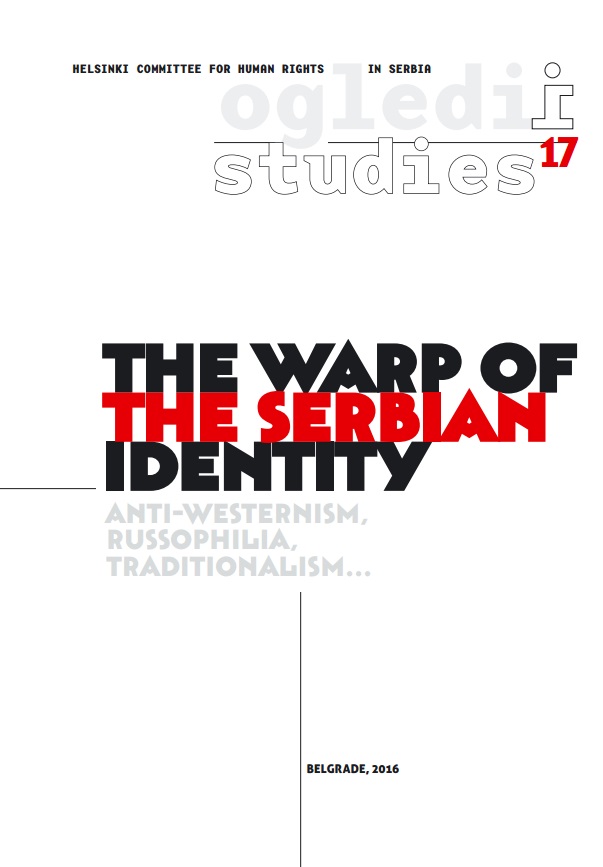
We kindly inform you that, as long as the subject affiliation of our 300.000+ articles is in progress, you might get unsufficient or no results on your third level or second level search. In this case, please broaden your search criteria.

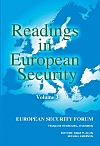
Iran: The Moment of Truth. A European Perspective (by François Heisbourg) Influence, Deter and Contain – The Middle Path for Responding to Iran’s Nuclear Programme. An American Perspective (by Patrick Clawson) Iran’s Nuclear Programme. A Russian Perspective (by Vladimir Sazhin)
More...
Chairman’s Summing-up (by François Heisbourg) | Ukraine’s Strategic Security: On a Crossroads between Democracy and Neutrality (by Alexander Bogomolov) | Ukraine’s Security: The Interplay of Internal and External Factors (by James Sherr) | Ukraine’s Strategic Security: Crossroads passed, bumpy road ahead or an optimistic view? .(by Arkady Moshes) | Ukrainian Foreign and Security Policy after the Collapse of the Orange Coalition (by F. Stephen Larrabee)
More...
Chairman’s Summing-up (by François Heisbourg) | ‘Afghanistan-lite’: The Crunch (by Julian Lindley-French) | Lessons from Soviet Experiences of Socialist Modernisation in Afghanistan (1978–89) (by Andrei Zagorski) | Afghanistan 2007: Problems, Opportunities and Possible Solutions (by Peter Bergen) | Strategic and Operational Measures to Curb the Growing Threat of Suicide Terrorism in Afghanistan (by Hekmat Karzai) | Afghanistan: Mission impossible? The Pakistani Perspective (by Ismail Khan)
More...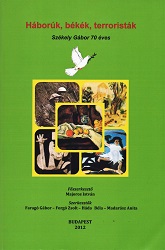
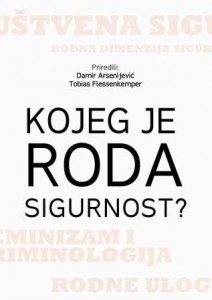
Ratni period prouzrokovao je različite oblike nasilja nad ženama, a nakon rata u Bosni i Hercegovini veliki fokus je stavljen na preispitivanje uloge i statusa žena s aspekta gender jednakosti. U raznim temama koje se danas obrađuju o pitanjima žena u Bosni i Hercegovini primjetno je da se potpuno izostavila kategorija žena koje su nesebično dale svoj doprinos, na razne načine, tokom ratnih dana. Ovo poglavlje je posvećeno ženama koje su dale doprinos u ratnim danima i koje su u tom periodu pokazale neizmjernu hrabrost. To su heroine koje su se dobrovoljno priključile u vojsku radi odbrane svojih porodica, naselja, gradova i države. Danas rijetko u javnom mišljenju možemo čuti o doprinosu koji su žene dale u ratnom periodu. U našem društvu se vrlo malo govori o ulozi koju su žene imale u odbrani zemlje, kao i bitnosti učešća žena u obnovi postratnog društva. Rijetko se mogu čuti podaci u medijima o ženama koje postaju nezavisne, jake i borbene u tim vremenima. Malo se pažnje poklanja ženama koje preuzimaju akcije kao nezavisne akterke. Ovo poglavlje će predstaviti sasvim drugu perspektivu koje su žene imale u vremenu od 1992. do 1995. godine. U ovom radu ćemo obrazložiti na koji su način žene Bosne i Hercegovine, sa posebnim akcentom na vojnikinje, dale svoj doprinos tokom ratnih dana i u postratnoj Bosni i Hercegovini u očuvanju sigurnosti. Na ovaj način ćemo pokazati da pojam sigurnosti i pojam vojnika nisu isključivo u posjedu muškaraca.
More...
Problemi uključivanja žena u zanimanja deklarisana kao čisto muška evidentni su i dalje širom svijeta pa tako i na prostoru bosanskohercegovačkog društva. Oružane snage oduvijek su bile prostor u kojem su muškarci dokazivali svoj maskulini identitet te je ženama bio ograničen pristup. Diskusija o tome da li žene trebaju aktivno participirati unutar oružanih snaga, da li im se time otvaraju nove mogućnosti, ili su i dalje diskriminsane na osnovu spola u ovom polju, uporište nalazi u nekoliko feminističkih pravaca (liberalni feminizam, feminizam razlike i postmoderni feminizam). Rad nadalje polazi od standarda zadovoljavanja i prakticiranja ljudskih prava, prava žena koja su u ovom slučaju diskriminisana uvriježenim stereotipima i patrijarhalnim stavovima. Nadalje, rad zaključuje potrebu sprovođenja djelotovornog istraživanja u cilju prikupljanja validnih informacija o položaju žena unutar Oružanih snaga Bosne i Hercegovine, njihovog razumijevanja koncepta ravnopravnosti spolova, zatim pokušaja razbijanja etabliranih sterotipa o muškim zanimanjima i društveno prihvatljivog ponašanja žena i slično.
More...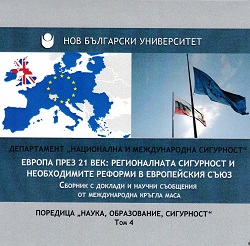
The main thesis of the report is that the extreme conditions of military occupation are a complex of the tasks’ nature and environmental conditions requiring targeted actions by military personnel during the execution of professional duties based on professional readiness formed through specialized training.
More...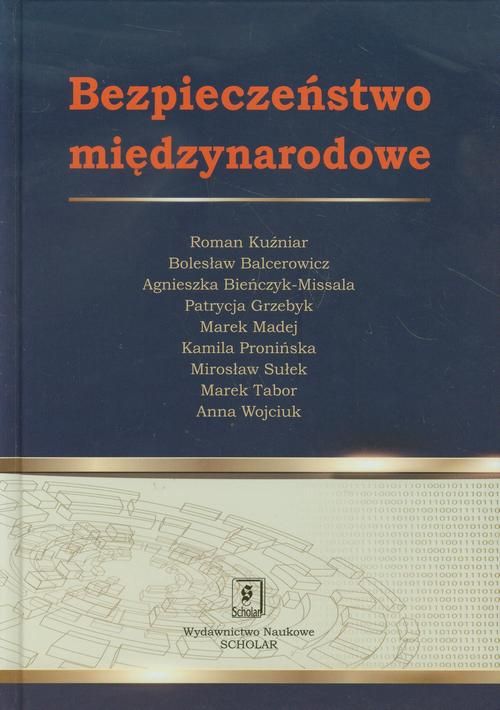










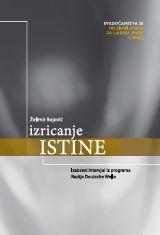
Many books have already been written about how Serbia reacted to the challenge at the beginning of the Third Millennium. In front of the reader is a book that stands out from the crowd because of who, when and what is said in it. On the airwaves of Radio Deutsche Welle, 149 intellectuals, predominantly of Serbian nationality, but also foreigners who deal with Serbia professionally, spoke in 169 interviews about the situation in Serbia mainly after October 5, 2000. By definition, the critical, individual opinion of economists, historians, doctors, diplomats, and artists rounded off the worrying picture of the whole. Speaking independently of each other, the interlocutors of Radio Deutsche Welle reveal the reality of Serbia, which is significantly different from the official reality. Marked as a peaceful revolution, as a new beginning for Serbia, as its historic chance to stop wasting time, with the undivided support of the European Union and the United States of America, October 5, 2000, when the consensual autocrat Slobodan Milošević was removed, was ambiguous. the event. Great hopes were raised; created unrealistic but explainable expectations; the apparent unity of intentions of the main actors was achieved. But, by itself, October 5, 2000 did not represent the balance of what happened in the previous 15 years, and even less a clear projection of Serbia in the future. The attempt made by Prime Minister Zoran Đinđić in this direction was brutally stopped by his murder. Legalism was the new name for the large-state project of the 1990s, which led Serbia to disaster, and the Serbian national and state issue to a dead end. The dismantling of Slobodan Milošević's regime could only occur as a consequence of discontinuity with that policy. … Collected in this book, they represent an important testimony that binds the ruling structures in Serbia. The reality cannot be ignored if there is a political will to change it and to stop the regression of Serbia.
More...